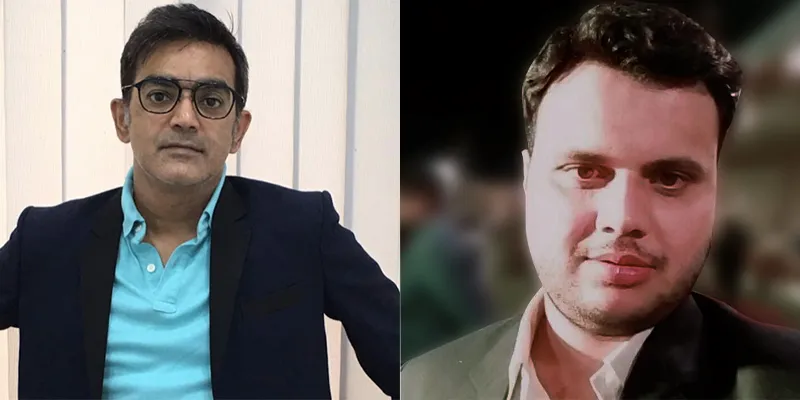This bootstrapped fintech startup has enabled Rs 10 Cr loans to small businesses in just a year
Mumbai-based fintech startup MudraCircle is using a tech-enabled alternative scoring model to provide credit access to small businesses that are normally not given loans by either banks or NBFCs.
Credit is the lifeline of any business or economy, and more often than not, a vast majority of people are seemingly unqualified to receive this money.
In an attempt to help small business owners or individual businesses avail credit, MudraCircle was started by Vaibhav Mishra, Anand Mishra, and Amit Kumar in 2018 in Mumbai.
Vaibhav says, “Studies have shown that 92 percent of SMEs or self-employed business are unfunded in India. This means they generally cannot avail credit either from a bank or NBFC.”
MudraCircle is looking to change this through a combination of technology, banking experience, and an understanding of business dynamics.
This fintech startup brings together borrowers and lenders onto a single platform. Over the last one year, it claims to have enabled the disbursal of around Rs 10 crore of loans.

MudraCircle founders: Vaibhav Mishra (left) Anand Mishra
The workings
Vaibhav has been into banking for nearly two decades now, while Anand and Amit are technologists.
With his experience in different functions in the banking sector, Vaibhav says he came across many people who just could not avail of credit as the parameters set by the bank did not fit their profile.
This was also compounded by the fact that banks or NBFCs were regulated bodies so they could not create any alternative lending models.
Vaibhav says, “There was this large pool of people, which was unfunded though there was cash in the system and there was a lot of digital activity happening.”
This gave the founders a sense of opportunity, which led them to start their bootstrapped venture.
“We decided to integrate all this data with the digital process and create an alternative scoring model, which is robust as well as flexible,” he adds.
How the platform works
Today, MudraCircle has created a technology platform where the entire credit profile of a customer happens in a matter of five to 10 minutes, and this information is available to the lenders to make their decision whether to provide the credit or not. Normally, the time taken to onboard any customer is about 48 hours or longer.
All the customer has to do is come onto the platform to seek credit by filling in the details and MudraCircle will find out the person’s credit profile.
The people who come onto the platform are mostly retailers, small manufacturers, traders, distributors, etc. The startup is planning to reach out to more smaller category borrowers in the future.
Tech-enabled solutions
MudraCircle is creating sophisticated algorithms with new-age technologies such as Machine Learning, Big Data, and Artificial Intelligence.
Vaibhav says, “Ninety percent of the analysis is done by the machine and the only human intervention is by a credit manager who checks on the output.”
The loans range from Rs 50,000 and go all the way up to Rs 10 lakh, while the average book size is around Rs 4 lakh. All these are unsecured loans. At present, five NBFCs are on MudraCircle platform, and it is also in talks with a few other banks.
According to the founder, MudraCircle charges a commission for every successful loan closure, which is like a profit-sharing model. At the same time, it also shares the risks on collections.
Taking the success route
The strides made by MudraCircle over the last one year has been due to several factors. Firstly, the team is a combination of banking and technology experts. This has enabled them to come out with solutions, which are more in sync with the requirements of the marketplace.
For example, many small businessmen would not need loans of a longer duration, and only need them for specific instances like festivals.
Similarly, MudraCircle’s bank statement analytics tool helps them to spot opportunities or risks early.
“Most of the technology tools we have developed are built inhouse, and this has helped us to keep the costs down,” says Vaibhav. This also helps the lenders as their costs of acquiring a customer is less, which can result in lower rates of interest charged on the loans they provide.
“The banks or NBFCs will only have to lend as we have built a robust process of identifying the customers,” says Vaibhav.
At a time when the fintech ecosystem has witnessed the presence of a multitude of players like Lendingkart, Capital Float, Rubique, and Cash Suvidha, to name a few, there are also certain sectoral funding challenges but MudraCircle is confident that it will carve its own niche.
“Initially, it was more of tech, but today things are maturing for the fintech segment and now people want to see results. We have the domain expertise, technology platform, and we also understand the market,” says Vaibhav.
Future plans
Now, MudraCircle is looking to scale its operations and it will be adding newer capabilities on its technology platform. It will be adding voice related assessment technology, which is useful in deciding the credit worthiness of a prospective customer on a telephone call itself.
The fintech startup is also building an early warning system, which can identify the doubtful borrowers so that enough proactive actions can be taken. MudraCircle is also planning to raise its maiden round of funding.
Vaibhav says, “If a bank or NBFC wants to disburse say Rs 200 crore, then their first option should be MudraCircle. We want to create an ecosystem where everybody can participate.”
(Edited by Megha Reddy)




![[YS Exclusive] How Aditya Puri primed HDFC Bank to fight disruption and ride the digital wave](https://images.yourstory.com/cs/2/fd6b2ee0-c6f4-11e8-af1c-974e95f3b2db/Aditya_Puri_11563357022996.PNG?fm=png&auto=format&h=100&w=100&crop=entropy&fit=crop)




